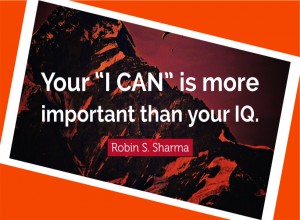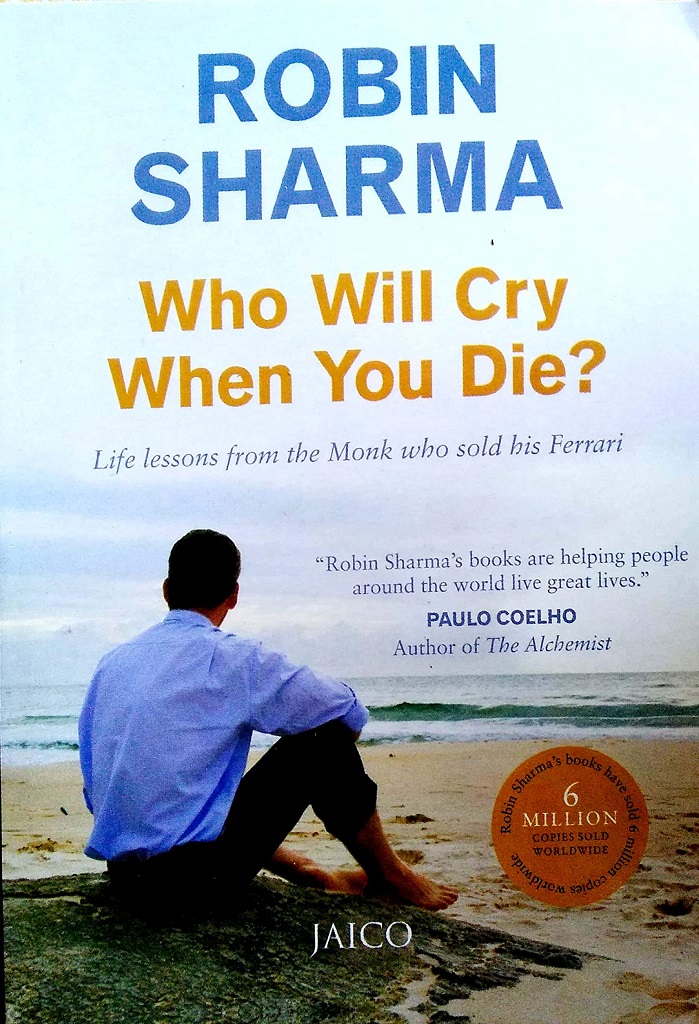Living a life Worth Living
Self-help books are always a matter of controversy in academic circles. There is a difference of opinion between realistic and optimistic schools of thought. Realists think that motivational content pumps you up for a moment; you start thinking about doing the wonders, then you sleep at night but when you wake up the next day, things are the same. You stand in front of the mirror watching yourself, and you realize that you are the same bullshit as you were yesterday. Optimists differ with this opinion as they think that a momentary pump, sometimes, plays the role of a trigger for you. This trigger could lead you to taking difficult first step, and then you keep going. According to optimists, all you need is a trigger. I don’t know where I stand. I am just witnessing this beautiful argumentation from both sides. Sometimes, it is more pleasing to take no side and witness the beauty of both sides. Because the moment you take the side, you miss the whole sight.
Robin Sharma is the author of five widely-acclaimed books including India’s bestseller “The Monk Who Sold His Ferrari” and the motivational classic “Mega Living”.
Starting with the title of the book, can you count or point out the people in your life “Who Will Cry When You Die?” Life should not be measured by how many people you made happy while you were existing. It should be measured on the scale ‘how many people you made cry while you left your body’. Sharma says, “While you were born, you cried while the world rejoiced. Live your life in such a way that, when you die, the world cries while you rejoice.” The book doesn’t tell us that Who Will Cry When You Die, But Sharma tells us 101 ways through which we can make people cry when we die.
The idea of this book revolves around self-love and self-enhancement. In times of failure or severe depression, we come very close to ourselves and we need much of our attention at that particular time. Sharma emphasises on self-care. Failing is okay, being depressed is okay, being sad is perfectly okay but not having yourself with you at these times is NOT OK. If we don’t stand with ourselves in hard times, who will?
Writing, especially about yourself, is now considered a mind therapy and has been adopted as a standard practice of many therapists to un-depress their depressed clients. Sharma directs his readers to keep a journal with them to write. He also makes a distinction between a diary and a journal saying that a diary is an event recorder while a journal is to evaluate and analyze those events. Another advantage of writing a journal is that it makes us think about our life. If our life is worth thinking about, it is, definitely, worth writing about. From therapy to event evaluation, writing a journal is the best technique.
In subsequent chapters of the book, the author teaches us how to honour our past? The past is something which is the greatest obstacle in the way of our success. Although the definition of success varies from person to person, we take its general meaning here. We feel so comfortable with our past and we don’t want to leave it behind but, it is indubitably true that all the growth happens out of our comfort zone. To get rid of the past, we must respect it and think that whatever happened was right for that moment. But, now, it’s not right to keep that. The only thing worth keeping from the past is its experience. Use that to do wonders. Let your obstacles make you jump higher.
Doing nothing is the most difficult thing to do. Sleeping is not ‘doing nothing’ because when you are sleeping, you are actually doing something. Doing nothing needs a supreme level of alertness and manifestation of mind. Sitting silently is the most powerful technique which can be adapted to be more patient, alert and recharging yourself to do extra work.
Sharma suggests waking up early. Yes, it is not a new piece of advice, but we have to look at why and how it works? According to my research and experience, waking up early is considered a harsh task—and, yes, it is! But let’s understand the science behind it. It is very simple. If you want to mould the iron, you have to melt it and then hit it to reshape it according to your choice. The study shows that the hour between 4:00 am and 5:00 am is the time when our body feels weak; as weak that a reasonable number of people die at this time. So, the iron is melted, your body is delicate, it is time to hit it hard and reshape your muscles the way you want them to be. It includes all types of physical and psychological muscles.
Further, the book under review sheds light on the importance of problems. No one likes problems and troubles. But they are important. How? If we analyze the whole existence, all the development and growth happened because of a problem. The problem is the only force that keeps us driving. Without a problem, there is no life. Turn your wounds you get from problems into wisdom.
On the question of knowledge and education, this book offers a very unique argument. Education is not something about degrees; it makes you able to do work which you don’t like to do but you have to do it and you do it successfully. Knowledge is something which enables you to practice action habit.
In later chapters, Sharma comments on the evil of orthodoxy and says that it makes a person blind but the worst thing is that we keep on believing that others are blind. What’s the solution? Book reading, exposing ourselves to new ideas, and practicing acceptance of diversity are the ways to become unorthodox and a valuable person.
Sharma has also highlighted the importance of book reading and, most importantly, how to read books effectively. The book highlights another factor behind failure of most people “Blame Canada”. In many surveys, it is found that the people who take their responsibility, they flourish, and those who keep relying on others for their success get nothing in the end. Taking your charge is the most difficult thing to do but highly rewarding. So, “don’t blame anyone.”
You don’t need to praise every book you read. As a genuine reader, it is your responsibility to point out the weak points of the books. So, one of the most irritating point I found in this book is that Robin consecutively quoted his previous book “The Monk Who Sold His Ferrari.” It was looking like a promotional book of his past writings. Every book should contain its standings with unique content.
The interesting thing about the book is that it consists of small chapters—1 to 3 pages, mostly. Easy to read, full of wisdom, never gets you bored and you can even finish it in one sitting, if you have your focus muscles developed enough.
In conclusion:
“All the motivational stuff seems to be irrelevant without action. It is not the motivation that encourages you to act but it is the action that becomes your motivation to perform another action. Stop looking for motivation to act, act and your action will become your motivation to do more actions.”
If you wait for motivation, your life will go like “Spring has passed, summer has gone and winter is here. And the song that I meant to sing remains unsung. I have spent my days stringing and unstringing my instrument.”
The reviewer is currently pursuing his studies at
Bahauddin Zakariya University (BZU), Multan.
 Jahangir's World Times First Comprehensive Magazine for students/teachers of competitive exams and general readers as well.
Jahangir's World Times First Comprehensive Magazine for students/teachers of competitive exams and general readers as well.



